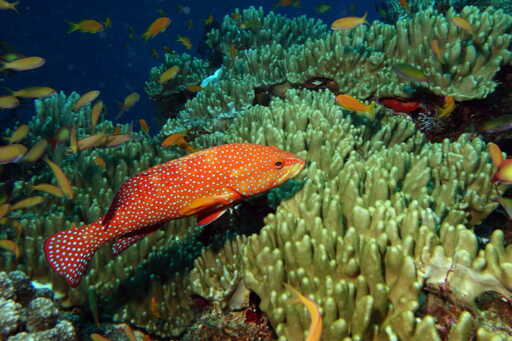Over the past year, a dredger operated by Dutch company Van Oord cut through a coral reef off the coast of northern Mozambique, part of the construction of French oil and gas giant TotalEnergies’ troubled liquefied natural gas project in Cabo Delgado. Data scientists analyzing satellite imagery and vessel data have found that a massive chunk of coral has been dredged out of the ecologically sensitive reef. The 32 islands of the Quirimbas Archipelago extend from the mouth of the Rovuma River, on the Mozambique-Tanzania border, to Pemba Bay in the south. The archipelago is home to a high number of endemic and threatened species, including coelacanths (Latimeria chalumnae), dugongs (Dugong dugon) and hawksbill (Eretmochelys imbricata) and green sea turtles (Chelonia mydas). Its coastal and littoral zone have estuaries and mangrove forests. “Of all the tropical oceans, the Indian Ocean by the Mozambique Channel is the ocean with the highest surface temperature increase, so corals are under stress,” said Daniel Ribeiro from the environmental justice organization Justiça Ambiental (JA!). “The ability to recover after damage is much lower because of these factors.” There are four major gas projects in the Rovuma Basin, including ENI’s Coral North floating liquefied natural gas project, which is the only one currently operational. TotalEnergies’ Mozambique LNG project was suspended in 2021, following an attack on facilities by insurgents. TotalEnergies and Exxon stopped work on their gas projects while regional troops joined the Mozambican army in battling the insurgents. In October 2025, the French company announced…This article was originally published on Mongabay
From Conservation news via this RSS feed


